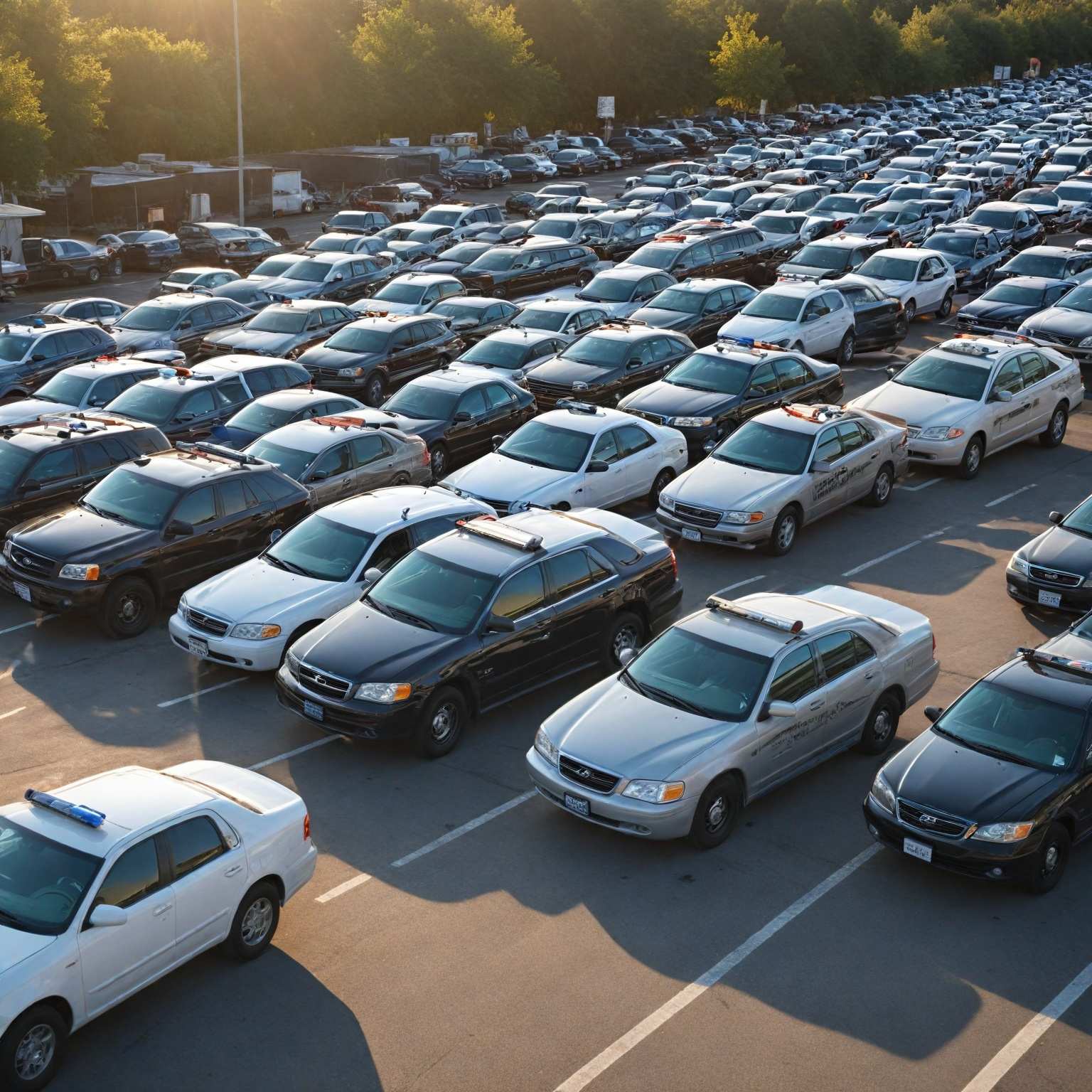Highlights
- Police impounded cars offer unique opportunities to purchase vehicles at prices below traditional market values.
- Buyers should conduct thorough research to navigate potential risks and uncertainties associated with these auctions.
- Understanding legal procedures and possible controversies is crucial for making informed decisions in the police impound market.

Summary and Overview
Police impounded cars are vehicles seized by law enforcement for reasons such as involvement in crimes, traffic violations, or public safety concerns. These cars are stored in secure lots and often sold at government auctions, providing buyers opportunities to purchase vehicles below market value. The impoundment process is regulated by law, requiring consideration of alternatives before seizure. Buyers should be aware that these vehicles are sold “as is,” with risks including hidden damage, unclear titles, or liens. Despite challenges, police impounded cars offer an affordable option in the used vehicle market for informed buyers.
Legal Process and Auction Procedures
Impounded vehicles are taken to designated lots and owners notified with details on fees and retrieval timeframes. If unclaimed—typically after fifteen days—the vehicles may be auctioned publicly, either in person, online, or by mail-in bids. Auctions vary in duration depending on the number of vehicles and may be delayed in special circumstances. Owners can contest impoundment legality, and understanding local regulations is key to minimizing costs and complications.
Acquisition, Condition, and Market Value
Police impounded cars are sold primarily through public government auctions, often advertised shortly before the event. The vehicles range widely in type and condition, from nearly new to damaged or inoperable, reflecting reasons for impoundment such as parking violations or mechanical failure. Prices are generally below market value but may require additional costs for repairs, insurance, and fees. Thorough inspection and vehicle history review are essential due to potential hidden issues.
Advantages and Risks for Buyers
Buying impounded cars offers significant cost savings and access to diverse vehicle types. Online auctions increase accessibility, and many vehicles are unrelated to criminal activity. However, buyers face risks including unknown vehicle history, mechanical problems, and no warranties. Additional expenses like taxes, registration, and repair costs should be considered. Legal complexities such as liens or improper impound procedures can also affect ownership and retrieval.
Buyer Profiles and Bidding Strategies
Typical buyers include budget-conscious individuals, car enthusiasts seeking restoration projects, mechanics, and investors. To improve success, buyers should research auction formats, inspect vehicles when possible, and target less crowded auctions to avoid bidding wars. Familiarity with registration, ownership transfer, and fees is important. Registration with auction platforms can provide access to a wide range of auctions and enhance transparency.
Case Examples and Related Concepts
Vehicles may be impounded as evidence in crimes or suspected of containing contraband, requiring probable cause. Improper impoundment or searches can lead to legal challenges, though honest mistakes rarely invalidate procedures. Police impoundment involves legally towing and storing vehicles considered unsafe or illegally parked until owners settle associated issues. Understanding these terms is vital for those interested in purchasing police impounded cars, which enter the market through auctions or government sales.
The content is provided by Jordan Fields, Fact-Nest












